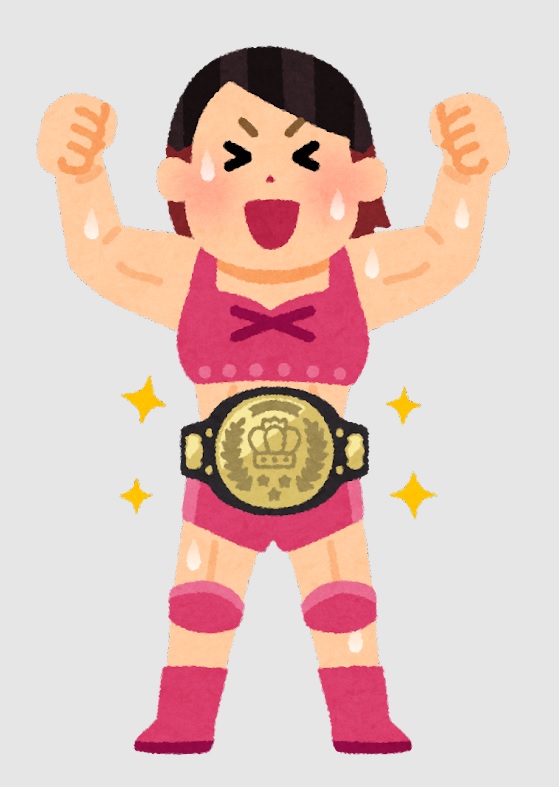「本当に人生が終わってしまう|夢のマイホーム、本当に必要ですか?」
今日は【貯める力】
マイホームは本当に必要か?
についてお話します。
人生の3大支出の中の一つ『家』
についてお話ししていきます。
本当に大きな買い物なので
しっかりと勉強していきましょう。
今日はマイホームの購入を検討している人
これから欲しいなぁと思っている人
いつかはと考えている人は多いのではないでしょうか?
そこの考え方についてお話ししていきます。
●本当に必要か?
もう一度しっかりと考えてほしい。
家というのは
失敗してしまうと本当に人生が終わってしまう
人がいっぱいいる。
だからしっかり学ぶ必要があります。
家というのは貧乏になる一番の原因になります。
言い方は良くないかもしれませんが
本当に貧乏になる一番の原因になります。
「家は資産だ!」
という人もいる。
家が欲しい理由を聞いてみると
「家は資産。だから欲しい」
本当に家は資産でしょうか?
日本の99%の家は
新築で買うと資産ではなく
『死産(しさん)』です。
死の財産と書いて『死産』です。
死んでしまう方ですね。
新築だと購入した瞬間に
2〜3割値段が下がります。
なぜかと言うと
結局販売会社であったりとか
バカ高い手数料を取られているからです。
要は2000万円の価値しかないものを
3000万円で買わされている状態なんです。
しかもローンを組んで。
買った瞬間に借金を負うんです。
「いやそんなことはない!資産になるじゃないか!」
という人もいる。
確かに資産になる可能性はある。
ですが日本の場合はそうならない。
世界の住宅事情だと確かにそうなんです。
家というのは年々値段が上がっていく。
これが世界の常識で
住宅の金額が下がっていく国という方が珍しい。
世界中のほとんどの国が家を買うと
土地の値段が上がっていきます。
日本の場合はほとんどそうならない。
そう言うと
「上がる家もあるよ!」
という人もたまにいます。
確かにあります。
それは不動産業界には
『千三つ』という言葉がありますが
1000件物件が有って3つ有るか無いかです。
結局その物件は投資用の物件で
投資家達が取り合ってる。
なので一般の人たちがこれを買える事はほぼ無いです。
だからほぼ出会う事はないです。
なので実質で言うと家は資産ではないです。
資産というのは
買った価格以上に将来的に
金銭的価値をもたらしてくれるものです。
これがやはり資産。
3000万円の家を買って
2000万円の価値しかないんだから
これは負債です。
この状態でお金が足りる訳がない。
40歳の人の平均資産はマイナス一千万円。
つまり負債が一千万円ある。
原因のほとんどが「家」です。
実際私も不動産投資をして
大家もやっているので色んな物件を見ています。
自己破産した物件が多いんですが
ほとんどが住宅ローンが原因です。
20年頑張って払い続けてきたけど
耐えられなくなって色んな事情で手放す。
ほとんどが住宅ローンで本当に苦しんでます。
35年ですよ!
大体の人が。
35年掛けてローンを返していく。
何か変だと思いませんか?
「家を建てて一人前」
という言葉があります。
そんな訳ないでしょ!
家建てないと一人前になれないなんて
そんなバカな話はありません。
学校で習ってきた事とか
世間の常識を疑う必要があります。
サラ金のCMなんかで散々
「借りすぎ注意!」
「ご利用は計画的に」
と言ってるのに
何で夢のマイホームだけは
こんなに借金しても大丈夫だと思うんでしょう?
日本貸金業協会では
年収などを基準にその3分の1を超える貸付けが
原則禁止されています(総量規制)。
年収300万円の人が
それの10倍とかの価格の家を買えてしまうのか。
おかしくないですか?
資本家側から見た景色は
世界中ある程度共通してます。
自分の会社で労働してくれる人が必要です。
労働してくれる人を
効率よくずっと働き続けてもらおうとすると
家を持たせるというのが一番です。
家の為にずっと一生懸命働いてもらう。
発展している賢い国の政府の政策は
住宅ローンを組ませます。
自分の人生の時間を消費して買ってる
という認識を持っていただきたい。
家を買うというのは大事な事であり素敵な事です。
家というのは未来の時間も使います。
例えば欲しいものを買うというのは働いて
時間単価が高い低いあれど
みんな少なからず働いて買う訳じゃないですか。
働いて買う。
ということはお金というのは
働いた時間である程度得ている。
なので結局何かを買うというのはお金を使う。
お金を使うというのは
時間を使っているのと同じことです。
家にいたっては
35年先の未来の時間まで使ってしまうんです。
自分の人生の時間が無くなってしまいます。
買ったらダメと言ってる訳ではなく
自分のリソース=人生の資源を
どこに投下するかという話です。
~~~つづく~~~
Special Thanks college president Ryo.
●おまけ
≪≪Chat-GPTくんによる要約≫≫
今日は「貯める力」として、マイホームは本当に必要かについてお話します。家の購入は人生の三大支出の一つで、非常に大きな買い物なのでしっかりと学ぶ必要があります。マイホームが本当に必要かどうかを考え直してほしいです。
家を購入すると貧乏になる原因になりやすいです。新築の家は購入した瞬間に2〜3割値段が下がります。販売会社や手数料の影響で、実際の価値よりも高い価格で購入することになるためです。多くの人がローンを組み、借金を背負うことになります。世界では家の値段が上がるのが一般的ですが、日本ではほとんどの場合値段が上がりません。日本では「資産になる家」は非常に少ないです。
資産とは将来的に金銭的価値をもたらすものですが、日本の家は買った価格以上の価値をもたらすことが少なく、むしろ負債となります。40歳の平均資産はマイナス一千万円で、原因のほとんどは住宅ローンです。自己破産した物件の多くも住宅ローンが原因です。
家を購入することは、将来の時間を使うことでもあります。35年のローンを返済するために働き続けることになります。家を持たせることで労働者を効率よく働かせるという資本家側の景色もあります。
家を買うこと自体が悪いとは言いませんが、自分の人生の資源をどこに投下するかをしっかりと考える必要があります。
≪≪Chat-GPTくんによる英訳≫≫
Today, I will talk about “saving power” and whether a home is truly necessary.
One of life’s three major expenses is housing. Since it is such a significant purchase, it is essential to study it thoroughly.
Many people are either considering buying a home, wanting one in the future, or dreaming of owning one someday. Let’s delve into whether a home is really necessary.
● Is it truly necessary?
I want you to reconsider this carefully. Many people’s lives have been ruined by making mistakes with home purchases, which is why it’s crucial to learn about it.
A home can be the primary cause of financial hardship. While it may not sound pleasant, it is indeed often the main reason for becoming poor.
Some people say, “A house is an asset!” But is it really? When asked why they want a house, they often reply, “Because it’s an asset.”
Is a house truly an asset?
In Japan, 99% of homes bought new are not assets but “shisan” (a play on words meaning “stillbirth” or “dead assets”). The value of a new house drops by 20-30% the moment it’s purchased because of the exorbitant fees taken by sales companies.
Essentially, you are paying 30 million yen for something worth only 20 million yen, and you take on a loan for it. The moment you buy it, you incur debt.
Some argue, “No, it can become an asset!” While it might be possible in some cases, this is generally not true in Japan.
According to The Economist house-price index, in most of the world, house prices rise year by year, making a declining housing market unusual. In most countries, the value of land increases over time, but this is rarely the case in Japan.
Some might say, “There are homes that increase in value!” But this is very rare. In the real estate industry, there is a saying “senzamitsu” meaning out of a thousand properties, only three might increase in value, and these are usually investment properties fought over by investors, not accessible to the average person.
Therefore, practically speaking, a home is not an asset. An asset is something that provides monetary value beyond its purchase price in the future. Buying a house for 30 million yen that is only worth 20 million yen makes it a liability.
With this situation, it’s impossible to have enough money. The average net worth of a 40-year-old is negative 10 million yen, mostly due to housing debt.
From my own experience in real estate investment and being a landlord, I’ve seen many properties that have led to bankruptcy, primarily because of home loans. After paying for 20 years, many people can’t keep up and are forced to sell due to various circumstances, struggling severely with their mortgage.
The typical mortgage term is 35 years. Doesn’t this seem odd?
There’s a saying, “You become a full-fledged adult when you build a house.” But that’s not true. You don’t need to build a house to be a complete adult. It’s necessary to question what we’ve learned in school and societal norms.
Loan advertisements often caution, “Be careful not to borrow too much!” and “Plan your use carefully,” but why is it considered okay to take on massive debt for a dream home?
The Japan Financial Services Association restricts lending to no more than one-third of your annual income. So, how can someone earning 3 million yen a year buy a house costing ten times that amount?
Isn’t this strange?
From the perspective of capitalists, it’s somewhat universal. They need employees who will work efficiently and continuously. The best way to ensure people keep working hard is to have them own a house, compelling them to work for a long time.
Smart government policies in developing countries often encourage taking out home loans. Recognize that when you buy a house, you are consuming future time from your life.
Buying a house is important and wonderful, but it also uses future time. When you buy something, you’re essentially exchanging your working hours for money. Spending money is equivalent to spending your time.
In the case of a house, you’re using your future 35 years of time. This means losing a significant portion of your life’s time.
I’m not saying you shouldn’t buy a house, but consider carefully where you invest your resources, your life’s time and energy.
Special Thanks OpenAI.


